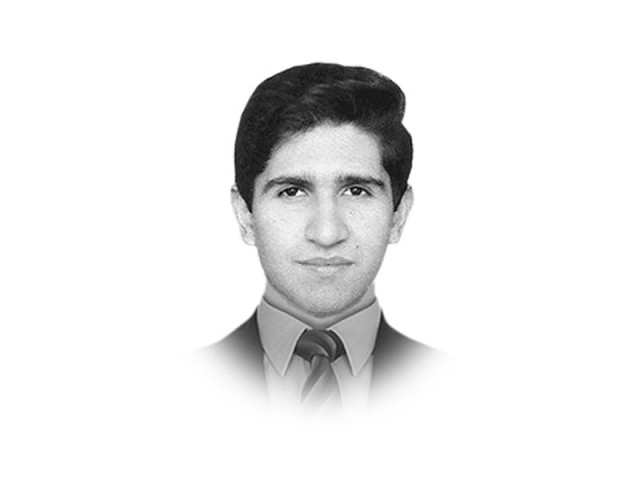The new age war
In modern warfare, numbers may not count as much as they did, which is just as frightening as prospect of all-out war.

The writer is a PhD in conflict studies and an independent security analyst. He has also taught at the University of Central Lancashire, UK
Today, the taste for wars has changed. Demchak states that since the ability of late 20th century military technologies to mow down multi-thousands instantaneously has become illegitimate, the process of the definition of innocents has also expanded to include non-military members of the enemy's society. Unless it can be sanitary with only a few deaths, war as a legitimate institution is undermined. Thus, wars now have to be cleaner, while as a paradox, the opposing tactic of terrorism has become dirtier, placing extra burden on military apparatuses.
If demographics are anything to go by, then variables such as the strength of the state and its militaries, population and economic strength, etc, should be elements to consider in framing a national security policy. If that is the case, then ideally, stronger states should have the most robust policies. However, as the American experience after World War I shows, its almost complete invulnerability did not result in a robust national security strategy by default. In fact, it was not till World War II that the US started flexing its muscle on the world stage. Thus, demographics do not result in robust national security doctrines by default, but by a process of ongoing evolution. States are like firms that emulate successful innovations of others out of fear of the disadvantages that arise from being less competitively organised and equipped. These disadvantages are particularly dangerous where military capabilities are concerned and so, improvements in military organisations and technology are quickly imitated.
Kenneth Waltz contends that the prospect that conflict will be conducted by force leads to competition in the arts and instruments of force, whereby contending states imitate military innovations contrived by the country of greatest capability and ingenuity. Eventually, the weapons of the major contenders, even their military strategies, begin to look much the same all over.
Another way that states aspire for parity is explained by the Offence-Defence Theory, which suggests that states must offensively try to offset an opponent's investment in defence. When the offence is dominant (e.g., it is easier to take territory than to defend it), the system's stronger states and their strategies of political expansion should benefit because larger and wealthier states can more effectively exploit offensive technologies. When the defence is dominant (e.g., it is more difficult to take territory than to defend it), the system's weaker members and their strategies of local defence should benefit. All else being equal, when the defence is dominant, the security dilemma will be dampened. Defence dominance allows states to react more slowly and with greater restraint to the capabilities-enhancing efforts and gains of their neighbours.
IW is also asymmetric since it empowers traditionally weak states and non-state actors with unprecedented offensive capabilities; provided if technology parity is achieved, it may offset the superiority of traditionally larger and stronger states against smaller states. Again, even the same parity levels may not even be needed. Recent study of IW also points out that the issue is not whether it is possible to defend information operations, but whether it can be done without undermining the network. Opponents need not gain ascendancy over the information system in order to challenge the superiority of the system's owner; all they have to do is persist long enough and force the creation of so many firewalls that the system no longer functions as designed. In the era of modern warfare, numbers may not count as much as they did, which is perhaps just as frightening as the prospect of all-out war.
Published in The Express Tribune, March 31st, 2013.















COMMENTS
Comments are moderated and generally will be posted if they are on-topic and not abusive.
For more information, please see our Comments FAQ